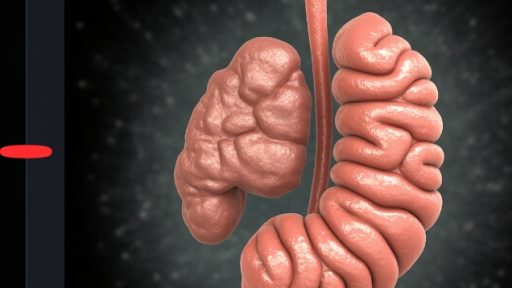
Discover the secrets to a good night’s sleep! Learn about the crucial role of sleep hygiene in overall health and well-being, and get practical tips to improve your sleep quality and enjoy more restful nights.Top Tips for Better Sleep Hygiene.
Top Tips for Better Sleep Hygiene. Sleep hygiene, sleep quality, better sleep, sleep tips, improve sleep, sleep disorders, insomnia, sleep deprivation, healthy sleep habits, sleep cycle, circadian rhythm, relaxation techniques, bedtime routine, sleep environment
Introduction:
In our fast-paced world, sleep often takes a backseat. But prioritizing sleep isn’t just about feeling rested; it’s fundamental to overall health and well-being. Adequate sleep is crucial for physical and mental restoration, impacting everything from your immune system to your mood and cognitive function. This blog post explores the importance of sleep hygiene—the habits and practices that promote good sleep—and provides practical tips to help you achieve better sleep quality.
Part 1: The Importance of Sleep for Overall Health
Sleep isn’t merely a passive state; it’s an active process vital for numerous bodily functions. Insufficient sleep, or poor sleep quality, can have significant negative consequences:
- Weakened Immune System: Chronic sleep deprivation weakens the immune system, making you more susceptible to illness. Sleep allows your body to repair and regenerate, strengthening its defenses.
- Increased Risk of Chronic Diseases: Studies link insufficient sleep to an increased risk of developing chronic diseases such as heart disease, type 2 diabetes, and obesity. Sleep plays a role in regulating hormones that control metabolism and blood sugar levels.
- Impaired Cognitive Function: Lack of sleep impairs cognitive functions like memory, concentration, and decision-making. Sleep is essential for consolidating memories and processing information.
- Mood Disturbances: Sleep deprivation is strongly linked to mood disorders like depression and anxiety. Sleep plays a crucial role in regulating neurotransmitters that influence mood.
- Reduced Physical Performance: Insufficient sleep negatively impacts physical performance, reducing strength, endurance, and reaction time. Sleep allows muscles to recover and rebuild.
- Increased Risk of Accidents: Sleep deprivation significantly increases the risk of accidents, both at work and while driving. Fatigue impairs judgment and reaction time.
Part 2: Understanding Your Sleep Cycle and Circadian Rhythm
To optimize your sleep, it’s helpful to understand the natural sleep-wake cycle, known as the circadian rhythm. This internal biological clock regulates various bodily functions, including sleep. The circadian rhythm is influenced by light exposure, and disruptions to this rhythm can lead to sleep problems. A typical sleep cycle consists of several stages, including:
- Non-Rapid Eye Movement (NREM) Sleep: This stage is further divided into three stages, progressing from light sleep to deep sleep. Deep sleep is crucial for physical restoration.
- Rapid Eye Movement (REM) Sleep: This stage is characterized by rapid eye movements and vivid dreams. REM sleep is essential for cognitive functions like memory consolidation and learning.
Part 3: Essential Sleep Hygiene Practices
Improving your sleep quality involves adopting healthy sleep habits, collectively known as sleep hygiene. These practices contribute to a more regular and restful sleep pattern:
- Establish a Consistent Sleep Schedule: Go to bed and wake up at the same time every day, even on weekends, to regulate your circadian rhythm.
- Create a Relaxing Bedtime Routine: Develop a calming bedtime routine to signal your body it’s time to sleep. This could include taking a warm bath, reading a book, or listening to relaxing music. Avoid screen time before bed.
- Optimize Your Sleep Environment: Create a sleep-conducive environment that is dark, quiet, and cool. Use blackout curtains, earplugs, or a white noise machine if necessary. Ensure your mattress and pillows are comfortable and supportive.
- Get Regular Exercise: Regular physical activity promotes better sleep, but avoid intense workouts close to bedtime.
- Limit Caffeine and Alcohol Intake: Avoid caffeine and alcohol close to bedtime, as they can interfere with sleep.
- Manage Stress: Practice stress-management techniques like meditation, yoga, or deep breathing exercises to reduce stress and anxiety before bed.
- Expose Yourself to Sunlight: Get regular exposure to sunlight during the day, especially in the morning, to help regulate your circadian rhythm.
- Avoid Large Meals Before Bed: Avoid eating heavy meals close to bedtime, as this can interfere with sleep.
- Stay Hydrated: Drink plenty of water throughout the day, but limit fluid intake close to bedtime to avoid nighttime bathroom trips.
- Create a Sleep Sanctuary: Make your bedroom a haven for sleep. Keep it clutter-free, clean, and organized.
Part 4: Addressing Sleep Problems
If you’re experiencing persistent sleep problems, such as insomnia or other sleep disorders, it’s crucial to consult a healthcare professional. They can help identify the underlying cause and recommend appropriate treatment options. Self-treating sleep disorders can be harmful.
Conclusion:
Prioritizing sleep hygiene is an investment in your overall health and well-being. By adopting these healthy sleep habits, you can significantly improve your sleep quality, experience more restful nights, and reap the numerous benefits of adequate sleep. Remember that consistency is key; establishing a regular sleep routine and sticking to it will yield the best results. If you continue to struggle with sleep, don’t hesitate to seek professional help. A good night’s sleep is essential for a healthy and fulfilling life.




